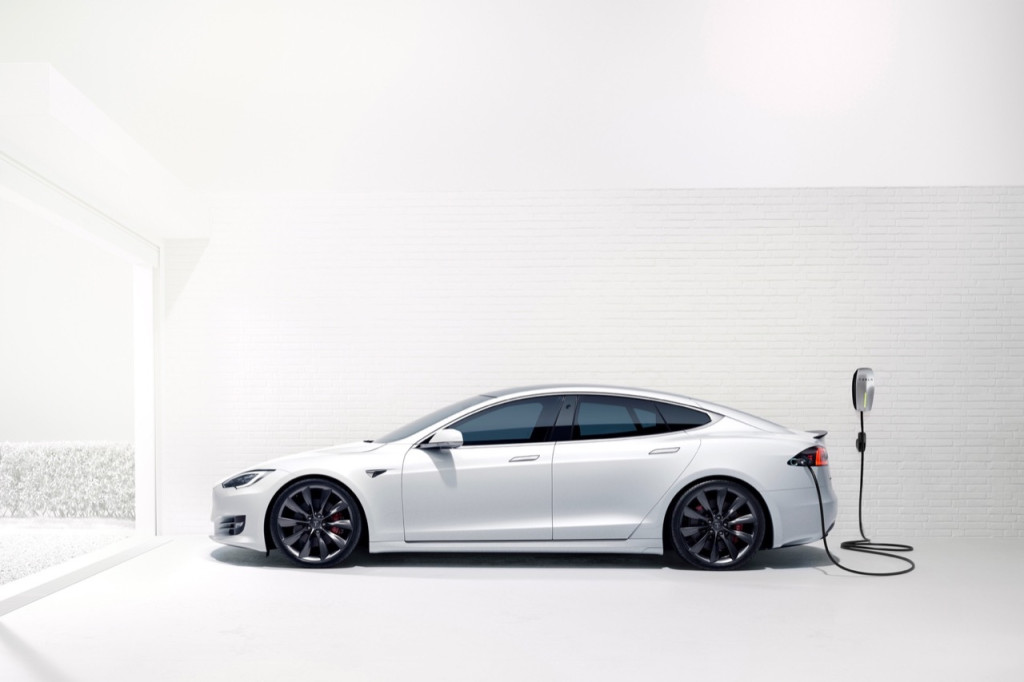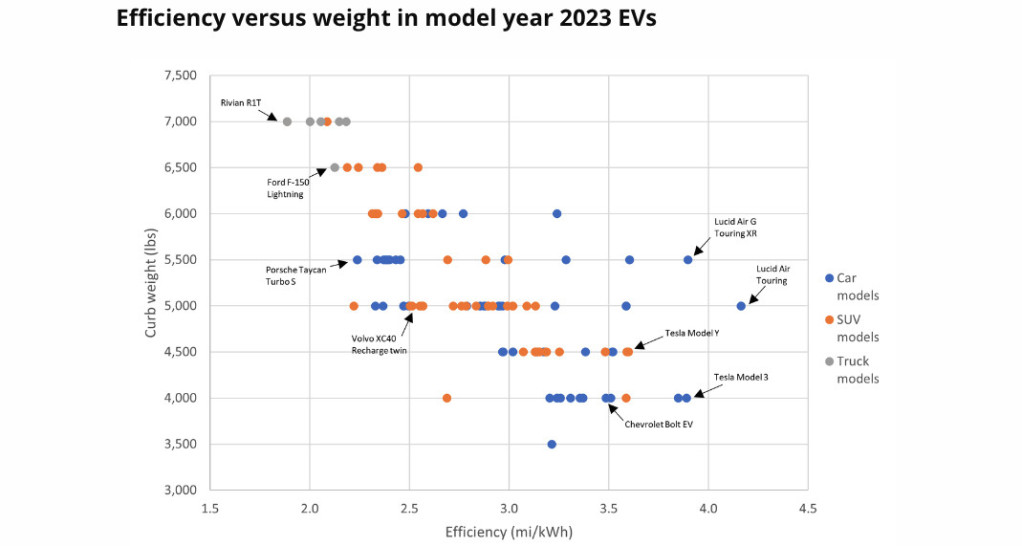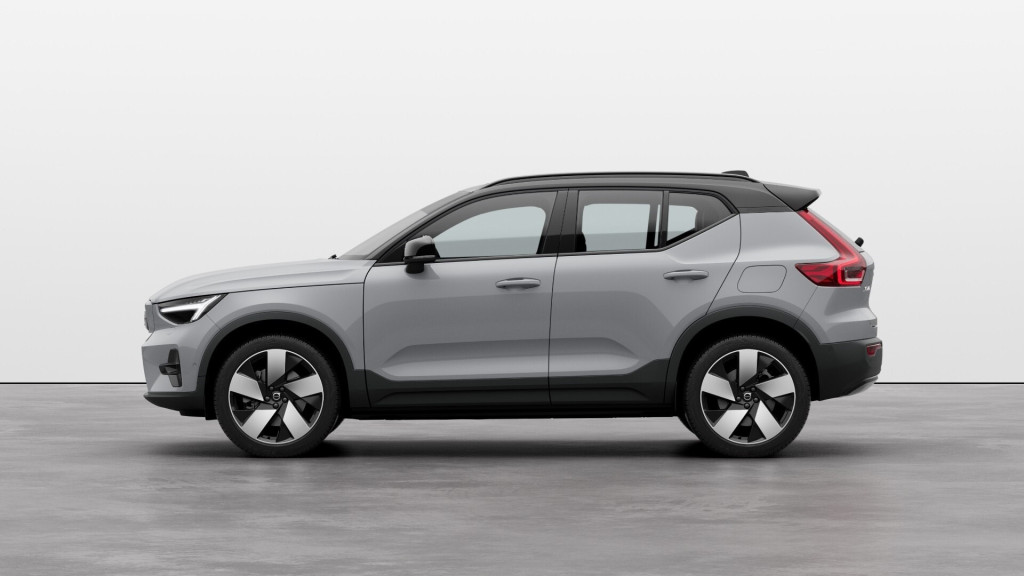As the auto industry awaits an EPA proposal for the next round of emissions rules for internal-combustion vehicles, an environmental advocacy group argues that similar standards should be applied to EVs.
The EPA has historically rewarded gasoline cars and trucks for being more fuel-efficient, but current standards count all EVs as having zero CO2 emissions, and hence don’t incentivize efficiency, the American Council for an Energy-Efficient Economy (ACEEE) noted in a blog post.

Tesla charging
EVs don’t produce “tailpipe” emissions, but factoring in amount the electricity they consume could lower overall emissions while reducing stress on the grid. At today’s average EV efficiency of 3.4 miles per kwh, 300 million EVs would add 1.2 million gigawatt-hours of electricity demand annually, enough to power almost 113 million homes, the group says, adding that upping efficiency to 4.3 miles per kwh would reduce demand by 230,000 gigawatt-hours.

Efficiency vs. weight in 2023 model-year EVs (via ACEEE)
Efficiency of 2023 model-year EVs sold in the U.S. ranges from 1.9 to 4.2 miles per kwh, and some models have room for improvement, the ACEEE argues. The Volvo XC40 Recharge is singled out in this analysis. The Volvo achieves 2.5 miles per kwh, which ACEEE analysts equate to 154 grams of CO2 emission per mile driven, still less than the 347 grams-per-mile average for new cars, but more than other EVs.
Boosting efficiency to 3 miles per kwh, which other EVs of a similar weight already achieve, would reduce the XC40 Recharge’s overall CO2 emissions to 129 grams per mile, the group claims. The 2024 XC40 Recharge is getting some updates, with efficiency due to improve.

Revamped 2023 Volvo XC40 Recharge (international spec)
Excess weight is also referenced, as the analysis notes that the XC40 Recharge weighs almost 5,000 pounds, which isn’t surprising given the added weight of a battery pack. In effect, current rules are subsidizing larger, more profitable electric utility vehicles—a point we’ve emphasized before. Other groups have also voiced concerns that all this added weight will affect safety for everyone else.
It’s time to be asking questions about EV efficiency again with the Biden administration expected to announce some early targets looking toward stricter 2027-2032 rules for internal combustion vehicles. Automakers backed stricter rules extending to 2026. But would they back rules taking actual efficiency of EVs into consideration? That remains to be seen.

